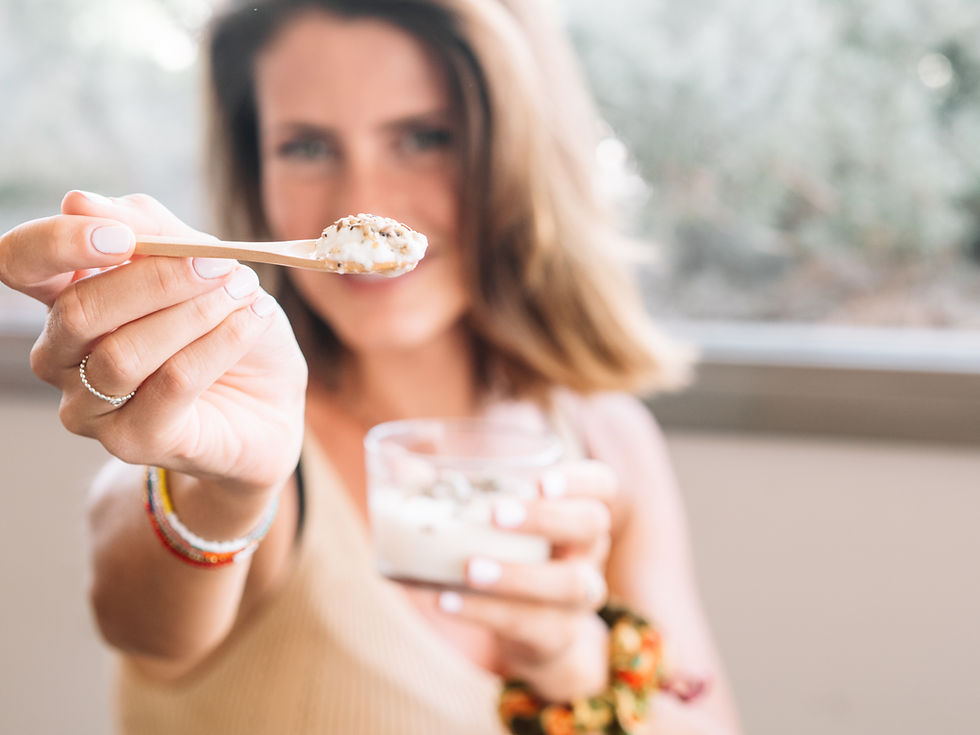What’s on Your Plate? How Balanced Meals Can Boost Your Mood
- toabetterself
- Dec 11, 2024
- 4 min read
Hi Beautiful, let’s talk about food — not just any food, but the kind that fuels your happiness.

We all know that what we eat affects our bodies, but did you know it also plays a huge role in how we feel emotionally and mentally?
The truth is, nutrition and mood go hand in hand. Creating a balanced plate is one of the simplest ways to boost your energy, support mental clarity, and keep your mood steady throughout the day.
Let’s break it down and build a plate that nourishes your body and uplifts your spirit!
The Nutrition-Mood Connection: Why Food Matters
Think of food as fuel for your brain. The nutrients you consume directly affect neurotransmitters like serotonin and dopamine — the chemicals that regulate your mood. A balanced plate with the right combination of proteins, healthy fats, and carbohydrates can keep these neurotransmitters working optimally, helping you feel happier, calmer, and more focused.
Unbalanced meals, on the other hand, can cause blood sugar spikes and crashes, leading to mood swings, fatigue, and even increased anxiety. So, let’s focus on creating plates that not only satisfy your taste buds but also keep your mood steady and joyful.
How to Build a Balanced Plate for Happiness
Start with Lean Protein for Stability
Protein is your body’s building block, but it also plays a crucial role in mood regulation. Proteins contain amino acids, like tryptophan, which help your body produce serotonin (the “feel-good” hormone). Adding lean proteins to your meals can help you feel calm and balanced.
Examples: Grilled chicken, turkey, tofu, eggs, fish, lentils, or Greek yogurt.
Add Complex Carbs for Energy
Carbohydrates are your brain’s primary source of fuel. The key is to choose complex carbs that provide steady energy and support serotonin production. These keep your blood sugar stable, avoiding the dreaded energy crash.
Examples: Quinoa, sweet potatoes, brown rice, oats, or whole-grain bread.
Include Healthy Fats for Brain Power
Healthy fats are essential for brain health and emotional well-being. Omega-3 fatty acids, in particular, have been linked to reduced symptoms of depression and improved mood.
Examples: Avocados, nuts, seeds, olive oil, or fatty fish like salmon and mackerel.
Load Up on Veggies for Nutrients and Fiber
Veggies are rich in vitamins, minerals, and antioxidants that combat inflammation and support a healthy brain. Their high fiber content also promotes a healthy gut, which plays a big role in mood regulation (hello, gut-brain connection!).
Examples: Spinach, broccoli, carrots, bell peppers, or any brightly colored vegetables.
Don’t Forget Hydration
Staying hydrated is just as important as the food on your plate. Dehydration can lead to fatigue, irritability, and difficulty concentrating. Keep a water bottle handy and sip throughout the day.
Tip: Add lemon, cucumber, or berries to your water for a refreshing twist!
Sample Balanced Plate for Sustained Happiness
Let’s put it all together! Here’s an example of what a balanced, mood-boosting meal might look like:
Protein: Grilled salmon or a plant-based option like tofu
Complex Carb: A side of quinoa or roasted sweet potatoes
Healthy Fat: A drizzle of olive oil or a handful of walnuts
Veggies: A colorful salad with spinach, cherry tomatoes, and carrots
Bonus: A squeeze of lemon and a sprinkle of seeds for extra flavor and nutrients
This combination will keep you satisfied, energized, and ready to tackle the day with a smile!
Foods to Avoid for Mood Stability
While we’re focusing on what to add to your plate, it’s also helpful to know what to minimize. Certain foods can trigger mood dips and leave you feeling sluggish or irritable.
Refined sugars: Cause blood sugar spikes and crashes
Processed foods: Often lack nutrients and can increase inflammation
Excess caffeine: Can lead to jitters and heightened anxiety
Instead, aim for natural, whole foods that nourish your body and mind.
Small Changes, Big Results
You don’t need to overhaul your diet overnight. Start with small changes, like adding a serving of veggies to your meals or swapping white rice for quinoa. Over time, these small adjustments will become habits that support your overall well-being.
Create Your Plate, Create Your Happiness
Food is more than just fuel — it’s a tool for living your happiest, healthiest life. By building balanced plates that include protein, complex carbs, healthy fats, and vibrant veggies, you’re giving your body and mind exactly what they need to thrive.
So, next time you’re planning a meal, think of it as an act of self-care. What you put on your plate today can set the tone for how you feel tomorrow.
Let’s Stay Connected for More Wellness Tips!
If this post inspired you to create balanced, mood-boosting plates, let’s keep the motivation going! Follow me on:
Instagram: www.instagram.com/to_a_better_self
Facebook: www.facebook.com/alex.toabetterself
TikTok: www.tiktok.com/@to.a.better.self
YouTube: www.youtube.com/@toabetterself
And don’t forget to subscribe to my newsletter for weekly tips, recipes, and inspiration to keep you on your journey to a better self.
Until next time, stay nourished and keep shining!
Your friend,
Alex











Comments